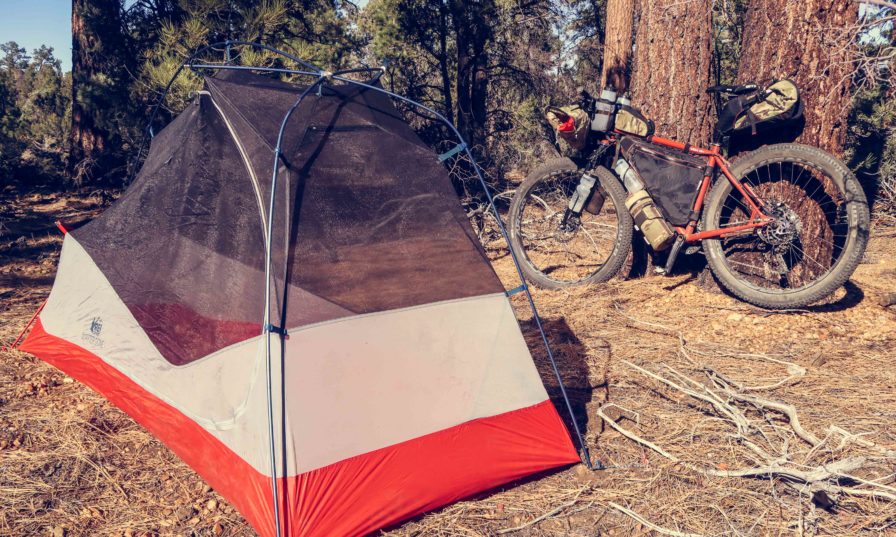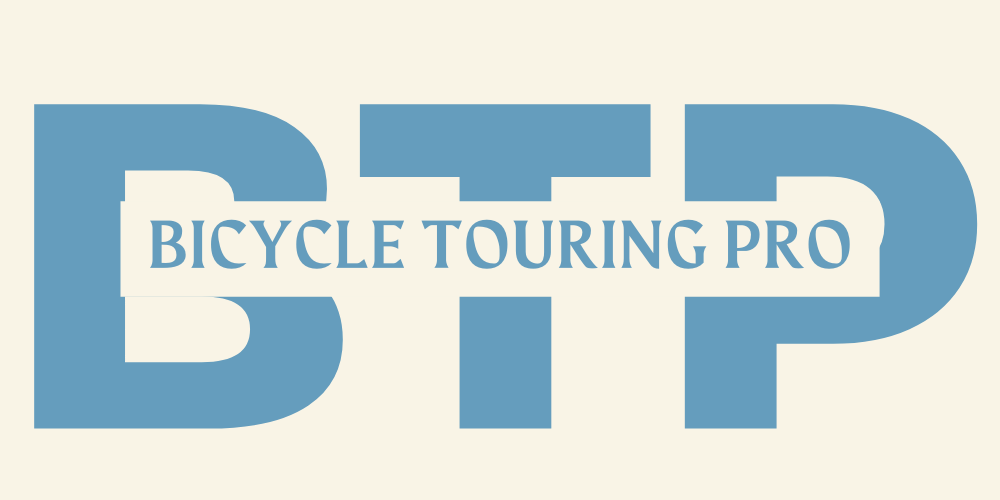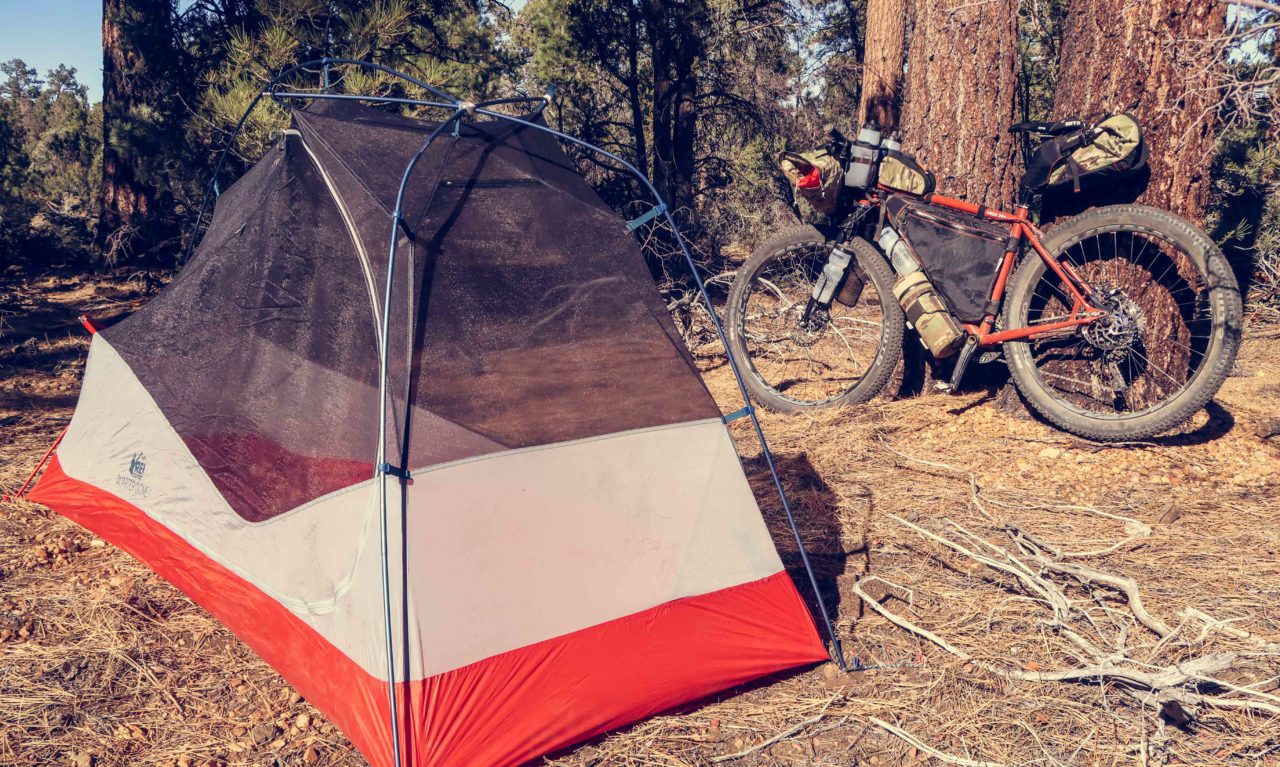5 Tips for Better Tent Sleeping

We’ve all been there. You’re exhausted, it’s been a long day on the bike. You even managed to find a quiet place to pitch your tent. It’s not too hot, not too cold. You’ve seemingly got everything you need for a good night’s sleep. So why are you still awake?
In my experience, sleeping well can make-or-break a bike touring trip. Naturally, you’re burning a lot of calories and need your energy to keep moving forward, whether you’re climbing the Alps or cruising the California coast. So below are my top five tips for better sleep while on the road. While we all wish we could stay in a comfy hotel or Airbnb every night, that just isn’t reasonable for most bike travelers. Plus, stealth camping is part of the fun, right?!
Tip #1: Give it time.
Okay, this might seem like a lame tip to start with, but I promise it’s true. I’ve found sometimes you need a couple of nights on the road to get your body used to sleeping in a different environment. Don’t freak out that you’ll be a zombie after your weeklong trip following just a night or two of poor sleep. It will get better. I promise. Your body will adjust to the new environment and soon enough you’ll be sleeping on a mountainside somewhere like you’re in a king-sized bed at home.
Tip #2: Have a routine.
I have a sleep routine whether I’m at home or on the road. This helps your body find familiarity with falling asleep whether you’re at home in bed or sleeping in your tent. Your routine is going to be different than mine, so figure out what’s best for you.
My routine? Don’t judge me…
- I eat something sweet, usually some chocolate. Don’t ask why, I just do. Plus, there’s some evidence chocolate can help you fall asleep quicker.
- I read a book. Usually on my Kindle (highly recommend for traveling – lightweight, comes with a built-in light, and stores hundreds of books). Another step to wind down and focus my thoughts elsewhere.
- I fall asleep to a podcast on low volume. My show of choice? The BBC Global News podcast. It’s 30 minutes or so, released twice a day, every day, and the beautiful British voices are wonderful to lull you to sleep quickly. My podcast player has a sleep timer that shuts off at the end of the episode so it doesn’t play all night.
That’s my routine, but again, yours should be different, and that’s great. Figure out what works for you and stick to it whether you’re at home or on the road.
Tip #3: Invest in good sleep gear.
Like I said, sleeping well can make-or-break your trip. That means your sleep equipment is some of the most important gear you’ll haul. Make sure you find a sleeping pad, tent, and bag that are high-quality and work for you. Also consider accessories like a blow-up pillow.
Some recommendations:
- Inflatable camp pillow
- Big Agnes sleeping pad – insulated!
- Big Agnes sleeping bag – this one’s got extra room for those who move around when they sleep
- REI Half-Dome tent. Tried and true option
Invest in some nice gear to improve your sleep on the road.
Tip #4: Get a sleep mask.
This is something I’ve started using recently, both at home and on the road. It’s been a game-changer for me. Especially if you’re camping in a place with lots of moonlight or other lights coming into your tent, a nice sleep mask creates a perfectly dark environment no matter where you find yourself. If you’re trying to sleep in later in the morning, a mask can also extend the dark period in your tent a couple extra hours. There are a bunch out there – but I’ve been using these for a few months and they’ve been great.
Tip #5: Try breathing exercises or meditation.
I use the Headspace app for meditation and breathing exercises, especially while on the road. When you’ve got a lot of thoughts racing around in your head, it’s great to have a personal guide to help you calm down and relax. There are tons of apps like these out there – and plenty of strategies online. I’m no expert, but this has worked for me when nothing else does. Figure out what works for you and stick to it!
I’ll say it again: good sleep on the road takes time and practice. Don’t underestimate this and try not to stress about sleep troubles if you have them – stress only makes it worse! Find a routine that works for you, and try to replicate it at home, too. This is essential.
Want more tips like this? Check out our books in the Bicycle Touring Pro store or pick up our video course on your first bicycle tour.
Happy riding!

